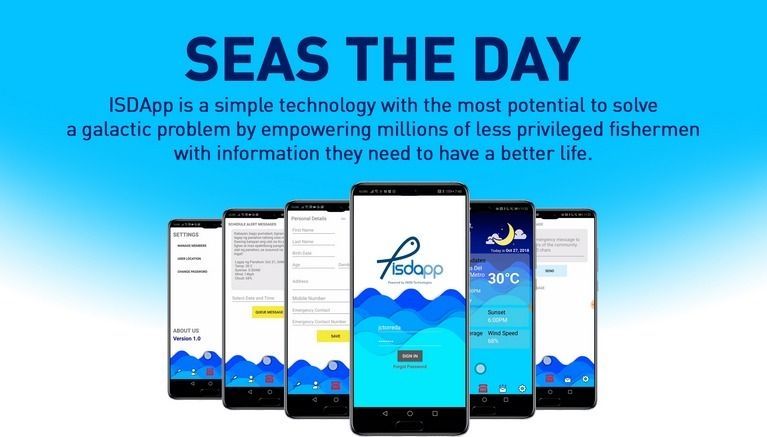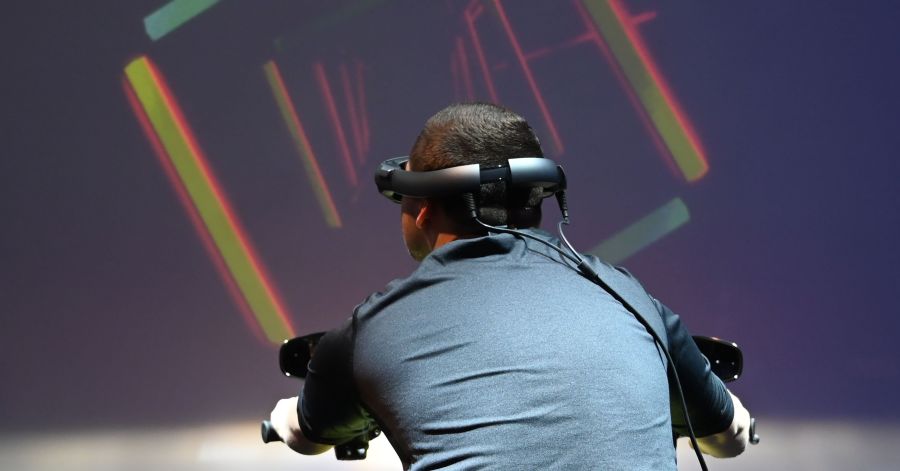Archive for the ‘virtual reality’ category: Page 55
Mar 6, 2019
San Francisco 2036: The Story of the First “Cyberian” Trillionaire and Countdown to the Singularity
Posted by Alex Vikoulov in categories: genetics, robotics/AI, singularity, virtual reality
Going forward into our exponential future…
“By our very nature, we humans are linear thinkers. We evolved to estimate a distance from the predator or to the prey, and advanced mathematics is only a recent evolutionary addition. This is why it’s so difficult even for a modern man to grasp the power of exponentials. 40 steps in linear progression is just 40 steps away; 40 steps in exponential progression is a cool trillion (with a T) – it will take you 3 times from Earth to the Sun and back to Earth.” –Alex M. Vikoulov, The Syntellect Hypothesis: Five Paradigms of the Mind’s Evolution.
Today is a special day for me. My AI assistant Ava scheduled few hours aside from my otherwise busy daily lineup to relive select childhood and adolescence memories recreated in virtual reality with a help of a newly developed AI technique ‘Re: Live’. Ava is my smart home assistant, too. I can rearrange furniture in any room, for example, just by thinking. Digital landscape wallpaper is changed by Ava by knowing my preferences and sensing my moods.
Feb 26, 2019
And the Global Winners Are
Posted by Michael Lance in categories: education, space travel, virtual reality
Global Winner ISDApp was created by a team called iNON in the Philippines (“isda” is the Filipino word for “fish”). This community app is designed to empower fishermen with daily information useful for fishing and safety. #SpaceApps #SpaceAppsPH
A virtual reality (VR) exploration of the Moon; an educational, problem solving, and collaborative VR game for kids using NASA and planetary data; and a tool to express the wonders of satellite imagery through audio are three of the six apps chosen as Global Winners in NASA’s 2018 Space Apps Challenge. The six Global Winners were selected from 1,375 apps created during an intense 48-hour global hackathon last October.
Feb 6, 2019
HTC Vive Pro Eye Hands-On: Feeling Powerful With Built-In Tobii Eye Tracking
Posted by Victoria Generao in categories: business, computing, finance, habitats, virtual reality
Hands are old news. VR navigation, control and selection is best done with the eyes—at least that’s what HTC Vive is banking on with the upcoming HTC Vive Pro Eye, a VR headset with integrated Tobii eye tracking initially targeting businesses. I tried out a beta version of the feature myself on MLB Home Run Derby VR. It’s still in development and, thus, was a little wonky, but I can’t deny its cool factor.
HTC announced the new headset Tuesday at the CES tech show in Las Vegas. The idea is that by having eye tracking built into the headset, better use cases, such as enhanced training programs, can be introduced. The VR player also says users can expect faster VR interactions and better efficiency in terms of tapping your PC’s CPU and GPU.
Of course, before my peepers could be tracked I needed to calibrate the headset for my special eyes. It was quite simple, after adjusting the interpupillary distance appropriately, the headset had me stare at a blue dot that bounced around my field of view (FOV). The whole thing took less than a minute.
Continue reading “HTC Vive Pro Eye Hands-On: Feeling Powerful With Built-In Tobii Eye Tracking” »
Jan 21, 2019
After the Smartphone: The Race for the Next Big Thing
Posted by Derick Lee in categories: mobile phones, robotics/AI, virtual reality
As the smartphone market matures, startups are racing to predict what’s next, and venture-capital firms are spraying money into fields like virtual reality, smart watches and even implants in the brain. Here are some of the startups attracting investment.
Venture-capital investors are spraying money into fields like virtual reality, driverless cars and even implants in the brain.
Dec 27, 2018
Virtual Reality Helps Hospice Workers See Life And Death Through A Patient’s Eyes
Posted by Genevieve Klien in categories: biotech/medical, health, virtual reality

Death’s Dress Rehearsal: Virtual Reality Explores Dying In A Hospice : Shots — Health News A Maine medical school and nearby hospice center are trying out a VR program aimed at fostering more empathy for dying patients among health workers-in-training. Not everyone is sold on the idea.
Dec 14, 2018
12 Creative Virtual Reality Uses Businesses Should Consider
Posted by Shailesh Prasad in categories: business, virtual reality
Virtual reality (VR) has made massive bounds in recent years. We’re now seeing VR as an innovative and creative experience catered to customers.
To find out about t he creative ways entrepreneurs are using VR — and which methods have true applicability — I asked a panel of entrepreneurs from Young Entrepreneur Council the following question:
Dec 4, 2018
The 2018 Update on The Future of Everything
Posted by Steve Nichols in categories: augmented reality, virtual reality
Augmented Reality (AR), Virtual Reality (VR), Mixed Reality (MR), Haptics and Holographics, are all in gradual market diffusion stage as of 2018, after having long been the stuff of science fiction content. Even so, even as of 2018, the misconceptions remains overwhelmingly widespread and strong, that these are for gaming, entertainment, leisure and recreation. None of these technologies or interface methods, however, were ever meant to be for just that alone.
Nov 30, 2018
How One Researcher Is Using VR to Help Our Eyes Adapt to Seeing in Space
Posted by Shailesh Prasad in categories: space travel, virtual reality
It’s not like moon-walking astronauts don’t already have plenty of hazards to deal with. There’s less gravity, extreme temperatures, radiation—and the whole place is aggressively dusty. If that weren’t enough, it also turns out that the visual-sensory cues we use to perceive depth and distance don’t work as expected—on the moon, human eyeballs can turn into scam artists.
During the Apollo missions, it was a well-documented phenomenon that astronauts routinely underestimated the size of craters, the slopes of hilltops, and the distance to certain objects. Objects appeared much closer than they were, which created headaches for mission control. Astronauts sometimes overexerted themselves and depleted oxygen supplies in trying to reach objects that were further than expected.
This phenomenon has also become a topic of study for researchers trying to explain why human vision functions differently in space, why so many visual errors occurred, and what, if anything, we can do to prepare the next generation of space travelers.















